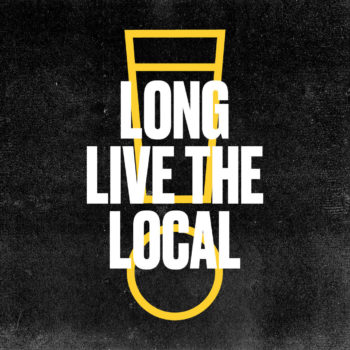Beer Duty
British beer is over-taxed. We pay some of the highest rates of duty on beer in Europe - second only to Finland. Lower tax on beer will help keep a trip to the pub an affordable pleasure.

Between 2008 and 2013 the beer duty escalator increased beer duty automatically by 2% above the rate of inflation every year. This hugely damaged the beer and pub industry.
Tax on beer rose by more than 40% during this time, with over a third of the price of a pint going straight to the taxman. Around 7,000 pubs closed and 58,000 jobs in the beer and pub industry were lost.
The one penny tax cut in the 2013 Budget was a turning point for the beer and pub industry.
Up to that point, brewers and publicans had endured six above-inflation duty increases in five years; they were left feeling that the Government didn’t appreciate the contribution the beer industry made to the economy. 2013's beer duty cut changed this.
The 2013, 2014 and 2015 Budgets recognised the unique economic and social value of beer and pubs, with an unprecedented hat-trick of beer duty cuts. This was followed by a freeze in the duty rate in 2016 which continued to keep a lid on beer prices.
These measures secured thousands of jobs in the sector and boosted investment in pubs by hundreds of millions of pounds.
In the March 2017 Budget, Chancellor Philip Hammond announced that the government would be reverting to previously planned 'upratings' of duties on alcohol.
This meant a 2p-a-pint increase in beer duty, the first rise in five years.
The increase was linked to inflation, which at the time was running at 3.9%. This effectively meant a tax of almost £130 million on beer. This ended a freeze that had protected beer from further duty increases. There was some small respite: the Chancellor also announced pubs would receive extra help with their business rates bill with a rate relief for one year. This meant £1,000 off rates for all pubs with a rateable value of less than £100,000.
After the damaging decision to increase duty early in 2017, the Chancellor made the welcome decision at the November Budget (an unusual second Budget in a year) to freeze duty on beer until February 2019. This was thanks to a concerted industry-wide campaign led by the BBPA and involving brewers, pubs and consumers.
Although this decision saved the industry over £100m there was still more to do.
Summer 2018 saw the launch of the Long Live the Local campaign. Over 100,000 people signed the petition to cut beer tax and almost 50,000 people emailed their MP asking them to support the campaign. At the Budget in October the Chancellor took the decision to freeze beer duty again.
Although it wasn't the cut we had hoped for, the decision still saved beer drinkers over £100m, safeguarding thousands of jobs and pubs, and stimulating millions of pounds of investment.
After five years of above inflation duty increases between 2008 and 2013 the BBPA feels beer is still overtaxed, despite recent cuts and freezes. Britons pay almost 40% of all EU beer duty but only consume 12% of the beer.
The industry is under severe pressure. Beer duty is one of the many cost increases hitting pubs, alongside other factors regulatory costs such as business rates.
The BBPA feels the tax burden on pubs is unfair and disproportionate when compared to other sectors. We think efforts need to be intensified to tackle the issue of pub closures and job losses in such an historic and uniquely British sector.
Any future tax increases will curtail renewed ambition, damage jobs and inhibit investment in manufacturing and skills. We want beer to remain affordable for Britain’s 32 million pub goers.
We continue to play a leading role in the campaign for lower tax on beer. The Government has plans to increase beer duty again this year and we will be working hard to stop this from happening. We hope you will join us in the campaign to cut beer tax by supporting Long Live the Local.